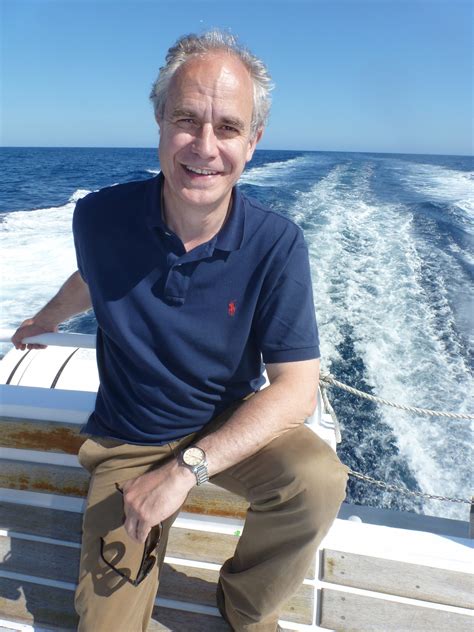A Quote by Norm Dicks
Overtime, hatchery fish tend to show signs of domestication and these traits adapted to the hatchery environment can make it more difficult to survive in the wild.
Related Quotes
If one yearns to see the face of the Divine, one must break out of the aquarium, escape the fish farm, to go swim up wild cataracts, dive in deep fjords. One must explore the labyrinth of the reef, the shadows of the lily pads. How limiting, how insulting to think of God as a benevolent warden, an absentee hatchery manager who imprisons us in the 'comfort' of artificial pools, where intermediaries sprinkle our restrictive waters with sanitized flakes of processed nutriment.
Increasingly, we will be faced with a choice: whether to keep the oceans for wild fish or farmed fish. Farming domesticated species in close proximity with wild fish will mean that domesticated fish always win. Nobody in the world of policy appears to be asking what is best for society, wild fish or farmed fish. And what sort of farmed fish, anyway? Were this question to be asked, and answered honestly, we might find that our interests lay in prioritizing wild fish and making their ecosystems more productive by leaving them alone enough of the time.
We are creatures. We have a link with a native habitat just like every other species. Throughout most of human history, physical activity was unavoidable, calories were scarce and hard to get. In the modern era, calories are unavoidable, physical activity is scare and hard to get. The traits that allowed our ancestors to survive, and let's face it, the survival of our ancestors is the reason that we're here because the people who don't survive and make very crummy ancestors, are our traits. But they're very much at odds with the modern environment.
Wild fish are under threat of extinction because they're hunted to feed us. Yet land animals that we farm are under no threat of extinction. Shifting from hunting fish to farming fish - where the farmers have the incentive to keep their stocks healthy - could do a tremendous amount of good for wild fish.
The metaphor I routinely use is polar bears in the Sahara desert. You take creatures adapted to the cold and put them in the heat, the very traits that allow them to survive in one environment will conspire against them in the other. We are polar bears in the Sahara with one important distinction: we are smarter than the average bear. Once we identify the nature of the problem, we can think our way out of it. But it begins by acknowledging you didn't fail because you couldn't succeed. Because you didn't even know what the scope of the problem was. It's not your fault.
There's this very interesting and complicated connection between our environment and our genes and the traits that come out of the environment plus genes. And there's huge potential. I mean we see amazing abilities. Marie Curie, Albert Einstein. All sorts of arts, and literature and so forth. These are not typical traits of everybody on earth.






























